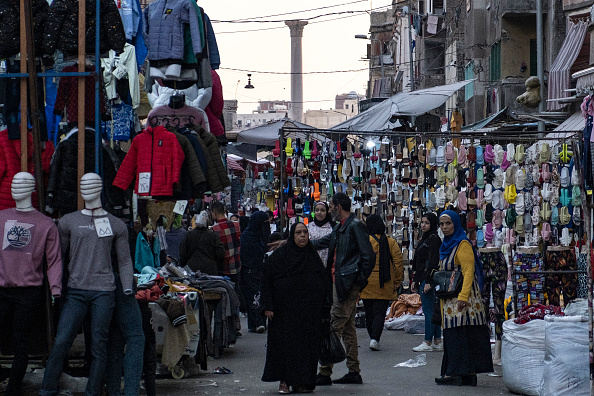Financial experts have been vocal in their criticism of the Sisi government, attributing Egypt’s current economic crisis to severe mismanagement. The latest blow to the nation’s economy came when the International Monetary Fund (IMF) extended Egypt’s loan program to a staggering US$8 billion, highlighting the dire situation at hand.
The World Bank recently revised Egypt’s economic growth forecast for the current fiscal year to a mere 2.8 percent, the lowest in over a decade. This downgrade marks the third time the international lender has adjusted Egypt’s growth projections downward this year alone. In its latest Middle East and North Africa Economic Update, the World Bank pointed to factors such as sluggish industrial sector performance, high inflation rates, and the regional conflict as contributing to Egypt’s economic woes.
Notably, Egypt faces significant revenue challenges due to the decline in income from the Suez Canal, a key source of national income. Recent attacks on international shipping in the Red Sea by the Houthis in Yemen have resulted in a nearly 50 percent decrease in revenue from the vital waterway. The ongoing conflicts in the region, including the war in Gaza, pose further threats to Egypt’s fiscal stability.
In a bid to address the economic turmoil, Egypt implemented a flexible exchange rate system for its local currency against the US dollar. This move, combined with the devaluation of the Egyptian pound, has led to a rise in the prices of essential goods, affecting a sizable portion of the population living below the poverty line.
To alleviate the pressure on its economy, Egypt has turned to selling state assets to wealthy Gulf nations, with recent agreements with the United Arab Emirates to secure much-needed funds. However, critics argue that the government’s focus on costly projects like the New Administrative Capital, which has incurred billions in expenses, has exacerbated the economic challenges facing the nation.
As Egypt grapples with its most significant economic crisis in recent history, the government’s handling of the situation has come under intense scrutiny. With experts pointing to the need for improved economic management and strategic planning, the road to recovery remains a daunting one for the country.
